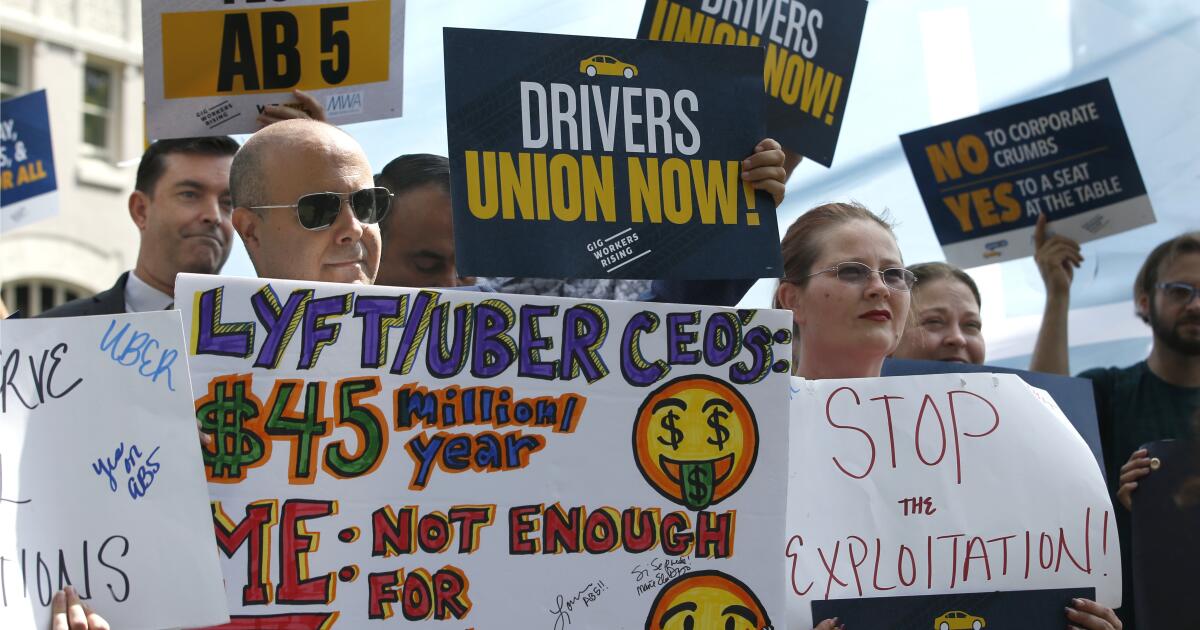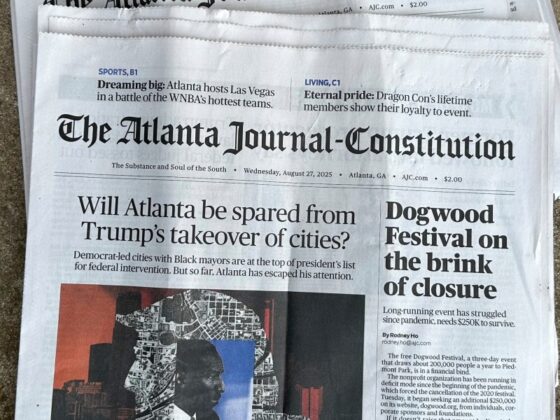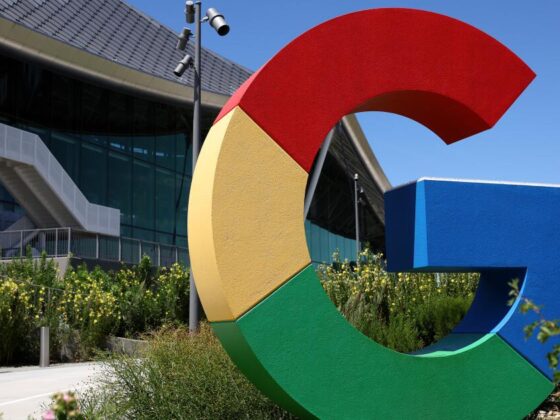SACRAMENTO — Gov. Gavin Newsom and California lawmakers on Friday announced a deal with Uber and Lyft on a bill that would allow hundreds of thousands of rideshare drivers to form unions and bargain collectively while still being classified as independent contractors.
Newsom, Assembly Speaker Robert Rivas and Senate Pro Tem Mike McGuire said they were backing a compromise that would advance the collective bargaining bill out of the Legislature along with a bill sponsored by Uber and Lyft that would significantly reduce the companies’ insurance requirements.
The companies have argued that current insurance requirements are so high that they encourage litigation for insurance payouts and create higher costs for passengers.
“Labor and industry sat down together, worked through their differences, and found common ground,” Newsom said in a statement. The agreement, he said, will “empower hundreds of thousands of drivers while making rideshare more affordable for millions of Californians.”
The deal marks a major development in the years-long tussle between organized labor and Silicon Valley companies over how California approaches workers rights for independent contractors.
The two bills “represent a compromise that lowers costs for riders while creating stronger voices for drivers,” said Ramona Prieto, Uber’s head of public policy for California, in a prepared statement.
After the California Legislature rewrote employment law in 2019, clarifying and limiting when businesses can classify their workers as independent contractors, Uber and Lyft went to California voters to exempt their drivers from that law. Their ballot measure, known as Proposition 22, passed by nearly 6 in 10 voters in 2020.
Lawmakers tried again this year when Assemblymember Buffy Wicks (D-Oakland) and Marc Berman (D-Menlo Park) introduced the collective bargaining bill, sponsored by the powerful Service Employees International Union California.
The bill, which Uber and Lyft initially opposed, would allow drivers to negotiate their pay and other terms of their agreements with their companies, and would exempt the workers from the state and federal antitrust laws that would normally prohibit collective action by independent contractors.
The insurance bill, backed by Uber and Lyft and introduced by state Senator Christopher Cabaldon (D-Yolo), would reduce the amount of insurance that companies like Uber and Lyft are required to provide for rides.
Currently, the companies must carry $1 million in coverage per rideshare driver for accidents caused by other drivers who are uninsured or underinsured. The agreement instead calls for $60,000 in uninsured motorist coverage per rideshare driver and $300,000 per accident.
Cabaldon said that the changes would eliminate “outsized insurance requirements that don’t apply to any other forms of transportation, such as taxis, buses, or limos.”













